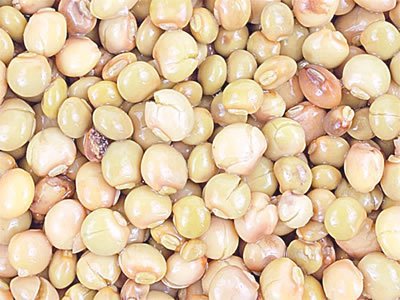Pigeon pea boosts immunity, prevent anaemia
It takes more than an apple a day to keep the doctor away. It turns out that eating the right kinds of foods, including pigeon pea can help to keep the immune system on guard and maintain good health.
Pigeon peas are among the top 10 legumes grown globally, along with common beans, peas, chickpeas, broad beans and lentils. Its local names in Nigeria includes Fiofio (Igbo), Aduwa (Hausa) and Otili (Yoruba).
The pea, an important grain legume crop in the tropics and subtropics, contain high levels of protein and important amino acids such as methionine, lysine and tryptophan.
This excellent source of magnesium, phosphorus, calcium and potassium also contains fewer amounts of copper, zinc and magnesium. Aside this, it provides an adequate amount of iron and selenium.
In combination with other cereals, pigeon peas make a well-balanced human food. No wonder, in Africa, the dried seeds are typically used in sauces to accompany staple food preparations such as rice, yam and cassava.
The immature seeds and pods of pigeon pea, been rich sources of mineral nutrients are also eaten fresh as a vegetable in soups and sauces. When ripe, the seeds are often soaked first before frying or boiling them into porridge.
Different parts of pigeon pea plant have also been used in folkloric medicines to treat diarrhoea, gonorrhoea, measles, burns, eye infections, earache, sore throat, sore gums, toothache, anaemia, intestinal worms, dizziness and epilepsy.
In Madagascar, its plant leaves are used to clean the teeth while in Peru, its leaves are used as an infusion for anaemia, hepatitis, diabetes, urinary infections and yellow fever.
In 2013, scientists considered its leaves a possible lead for a anti-malarial drug discovery. In the Journal of Parasitology Research, the scientists indicated that its leaves possess antimalarial properties, corroborating its use for malaria infection in south western Nigeria.
Aside its effectiveness as a worm expeller, it was indicated as having significant anticancer activity by scientists in the 2013 BMC Complementary and Alternative Medicine journal. It was a study that examined 24 locally used Nigerian medicinal plants on five different cancer cell lines.
Extracts of its leaves is also protective against gastric ulcer, Indian scientists said in the 2014 International Research Journal of Pharmacy. Ethanolic extract of its leaves were found to be protective against ulcer and improve ulcer-healing activity.
Sickle cell anaemia
Clinical studies have reported its seed extracts to inhibit red blood cell sickling and potentially beneficial for people with sickle cell anaemia. Its extract appears to be safe, easily administered and efficacious in reducing painful crises and may offer increased benefit to patients with sickle cell anaemia in future.
Alleviate malnutrition
In a study, experts found that corn-pigeon pea blends can improve nutritional status of children. Researchers found that stunting reduced in school children aged six to nine years in Suba District, Kenya, whose diet was supplemented with corn-pigeon pea blend as porridge.
The researchers, in the 2009 edition of the Journal of Food, Agriculture & Environment, linked the reduction in stunting and under nutrition to genistein and immune-boosting substances that can improve growth in grain legumes.
Maintains blood pressure
Potassium is the key mineral which is found in pigeon peas that acts as a vasodilator by reducing the blood constriction and also blood pressure. Those who suffer from hypertension should add pigeon peas to the daily diet because they are highly prone to the cardiovascular disease.
Prevent anaemia
Folate is found in adequate amount in pigeon peas which helps to prevent anaemia and neural tube defects in unborn which is caused due to the deficiency of folate. An intake of single cup of pigeon peas provides about 110 per cent of the daily recommended amount of this vitamin.
Helps weight loss
Both its leaves and seeds support weight loss and management of cardiovascular diseases. Pigeon pea has low amount of calories, cholesterol and saturated fats which makes it healthy. Its high dietary fibre keeps full for a long period of time, increase metabolism rate and reduces the possibilities of weight gain.
Boost immunity
This source of Vitamin C helps to promote the white blood cells production and acts as an antioxidant that promotes overall wellness and strong immunity. But to maintain the nutrients, raw is better because 25 per cent of nutrients are lost when cooked.
In fact, a 2016 study reported in the Journal of Animal Research that pigeon pea leaves powder caused a significant increase in the immune status of broiler birds under laboratory conditions.
Healthy colon
Like many legumes, pigeon peas are rich in dietary fibre that is essential for maintaining the digestive health. Fibre adds bulk to the stool and enhances the bowel movements by reducing the strain as well as inflammation. It reduces constipation, cramping, bloating and diarrhoea.
10Click to share on Facebook (Opens in new window)10Click to share on Twitter (Opens in new window)Share on Skype (Opens in new window)Click to share on WhatsApp (Opens in new window)

